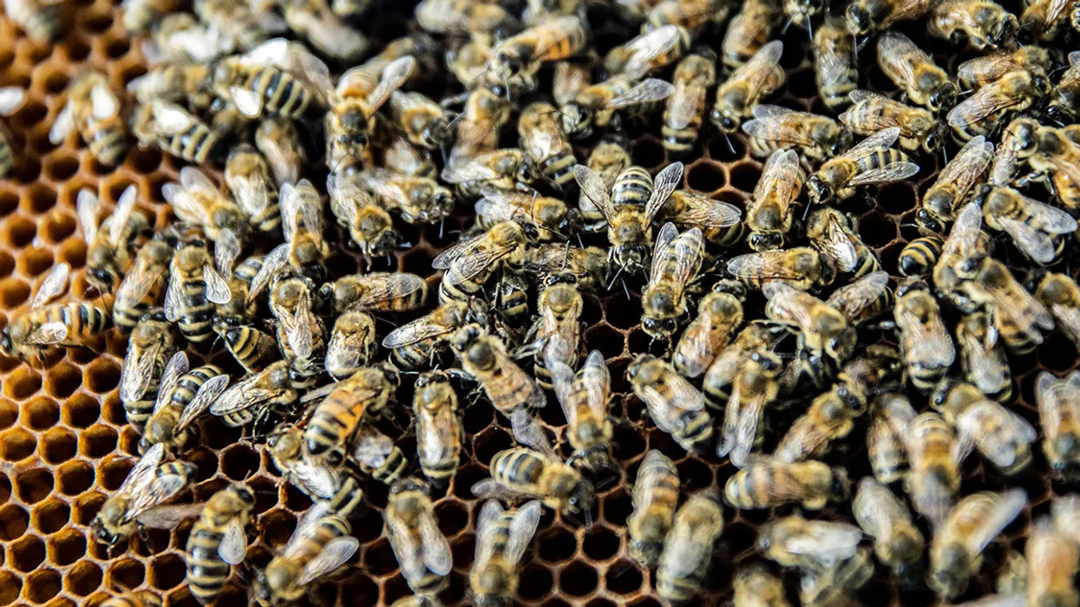Honey bees guarding the entrances to their respective hives are twice as likely to allow access to virus-infected trespassers, suggesting that the pathogen is capable of altering the insect’s behavior and physiology to boost its spread to neighboring colonies.
Israeli acute paralysis virus (IAPV) is a widespread virus that has been linked with colony losses, such as the mysterious outbreak of honey bee Colony Collapse Disorder across the U.S. Publishing their work in Proceedings of the National Academy of Sciences, researchers at the University of Illinois at Urbana-Champaign determined that the virus is capable of changing certain host behaviors and physical traits, particularly in social contexts, of one of the world’s most critical pollinators.
“The most important finding of our study is that IAPV infection increases the likelihood that infected bees are accepted by foreign colonies,” said lead study author and professor of entomology Adam Dolezal. “Somehow, the infected bees are able to circumvent the guards of foreign colonies, which they shouldn’t be able to do.”
IAPV is considered a “category of concern” and previous research has shown that honey bees infected with the virus are more likely to get lost when returning to their home hives. To determine how the pathogen manipulates host behavior, researchers built on previous work that employed an automated system to study bees’ use of trophallaxis, the regurgitation of food and other liquids to feed colony members.
“Honey bees use trophallaxis to share food with each other as well as hormones and other signaling molecules that can affect their physiology and behavior. They do it in pairs by touching their mouthparts and antennae, and each bee does this with hundreds of partners a day,” said study co-author and entomologist Gene Robinson.
READ MORE AT EcoWatch.com

